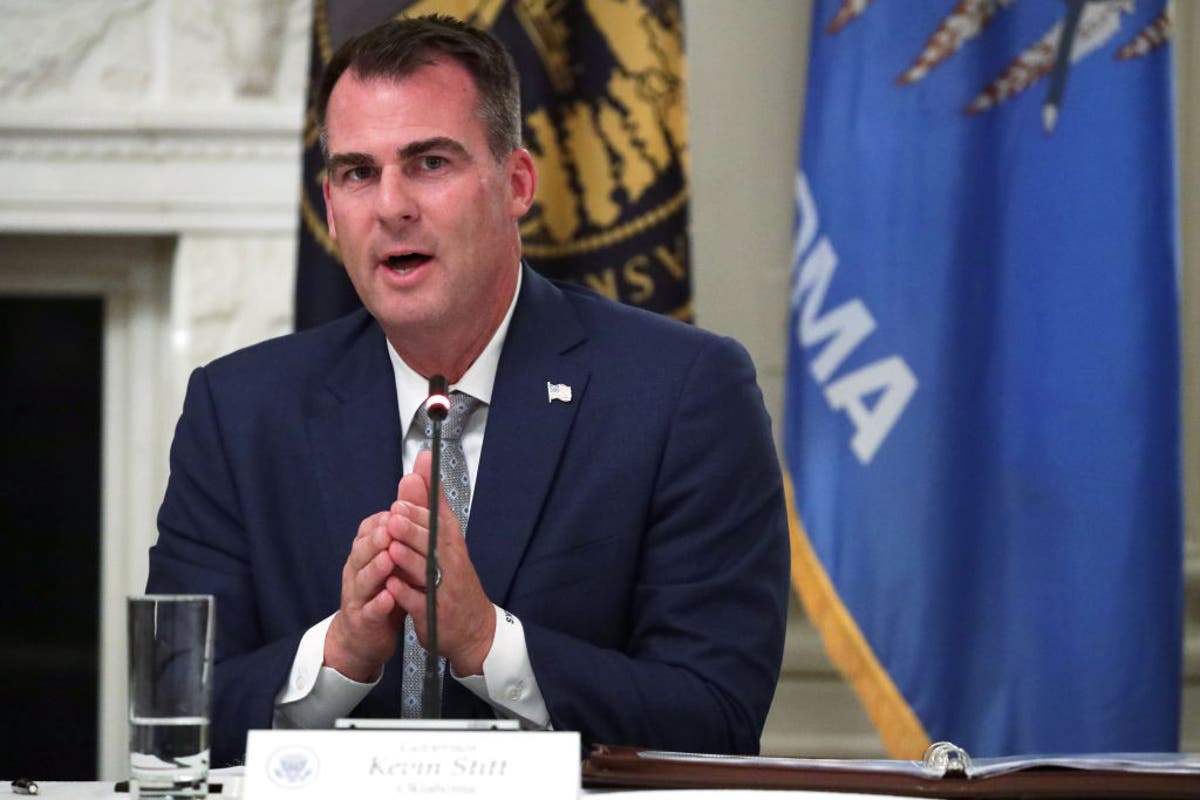
Nex Benedict, a transgender 16-year-old student from Oklahoma, was knocked to the ground during a fight, hit their head on the floor and was left with bruises and scratches after being badly beaten, their mother, Sue Benedict, said. The injuries were a result of Nex and another transgender student having been in an alleged fight a few weeks ago with three older girls in a girls bathroom at school. The following day, Nex collapsed in the family living room and was taken to the emergency room, where they were later declared dead.
While the Owasso Police Department released a statement to say preliminary information indicated that Nex “did not die as a result of trauma,” the incident has sparked further scrutiny of the state’s anti-trans policies.
Nex, who was gender fluid, was bullied in school, Ms Benedict, told The Independent. Just under two years before the fight broke out at Owasso High School and Nex passed away, Oklahoma governor Kevin Stitt signed a bill that required public school students to use bathrooms according to the sex that was listed on their birth certificates. Nex was using the bathroom as determined by that legislation.
But what is included in this bill, and how does it affect transgender students?
The bill, signed by the governor in May 2022, passed ‘SB 615’ by a vote of 38-7 in the Republican-led Senate, CNN said.
As soon as the bill was approved, it took place effective immediately as the governor claimed it was an emergency to protect “public peace, health or safety.”
It was immediately regarded by LGBTQ activists as dangerous policy, part of a wider anti-trans movement across the country to limit rights for trans people.
Aside from bathrooms, the bill extends but is not limited to locker rooms, changing rooms and shower rooms.
The bill applies to students all the way from pre-K to 12th grade at public schools in Oklahoma.
If a school district or a charter school does not comply with the bill, their state funding will be decreased. Parents or legal guardians also have the ability to declare a cause of action against the school if they fail to comply with the bill.
They added that the schools should provide “reasonable accommodation” to any individual who does not want to comply with the bill’s rules and should be given access to a single-occupancy restroom or changing room.
The bill stated that the “opposite sex” should enter restrooms that are not designated to them only for custodial, maintenance, inspection purposes or to render emergency medical assistance.
“Disciplinary action” should be given to individuals who refuse to comply, the bill said.
Other anti-transgender legislation in Oklahoma
The Oklahoma governor has been no stranger to signing other anti-trans bills into their state.
In March 2022, the governor signed legislation that banned transgender women and girls from competing in sports events that align with their gender at school, CNN reported.
The following month, in April 2022, a law was also approved to ban any nonbinary gender markers on birth certificates, saying that the designation shall be either male or female.
More recently, in August 2023, Governor Stitt signed an executive order that directed state agencies to use narrow definitions of ‘male’ and ‘female.’
“Today we’re taking a stand against this out-of-control gender ideology that is eroding the very foundation of our society,” Mr Stitt said at the time, according to NBC.
“We are going to be safeguarding the very essence of what it means to be a woman.”
Anti-transgender legislation is not limited to Oklahoma, however, as at least 442 anti-LGBTQ+ bills have been tracked throughout the United States so far in 2024, according to data from the American Civil Liberties Union (ACLU).
The house author of the bill, Danny Williams, told the Associated Press at the time that the bill was “about safety, it’s about protection, it’s about common sense. The goal of this bill is to protect our children.”
Yet, when the ‘bathroom bill’ was passed in Oklahoma, it was met with a lot of criticism for the policy singling out transgender students.
“Excluding them from restrooms that match their gender identity, SB 615 discriminates based on transgender status and sex in violation of the United States Constitution and Title IX of the Civil Rights Act,” Tamya Cox-Touré, the ACLU of Oklahoma Executive Director said in a statement when the bill was first introduced, according to CNN.
“These violations put Oklahoma at risk of losing hundreds of millions of dollars in federal funding, and harms transgender youth, all to solve a problem that plainly does not exist.”
Since Nex’s death, a renewed outrage for Oklahoma’s anti-trans stance in a number of its policies has been called out on social media.
“The killing of Nex Benedict is gut-wrenching and underscores the danger of extremists who are dehumanising kids with anti-trans hate in Oklahoma and across the country. Every student should feel safe at school and supported for who they are,” Massachusetts Senator Elizabeth Warren wrote on X.
“Nex deserves justice,” she added.
The Human Rights Campaign, an LGBTQ+ advocacy group, said in a statement following Nex’s death that this incident “comes at a time when extremist politicians have weaponised trans and gender-expansive identities for political gain, stoking hate and discrimination through their vile rhetoric.”
Freedom Oklahoma, a 2SLGBTQ+ advocacy group, also said that “this harm is absolutely related to the rhetoric and policies that are commonplace at the Oklahoma Legislature, the State Department of Education, and the Governor’s office.”



